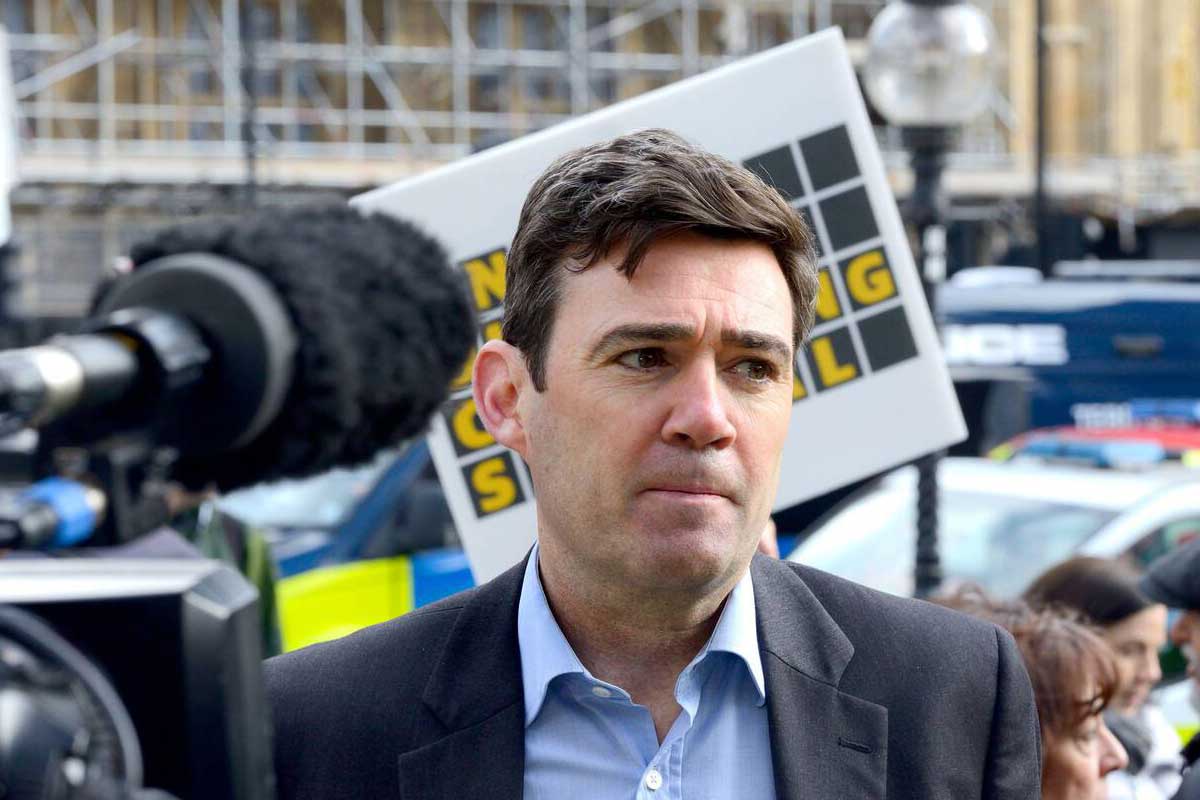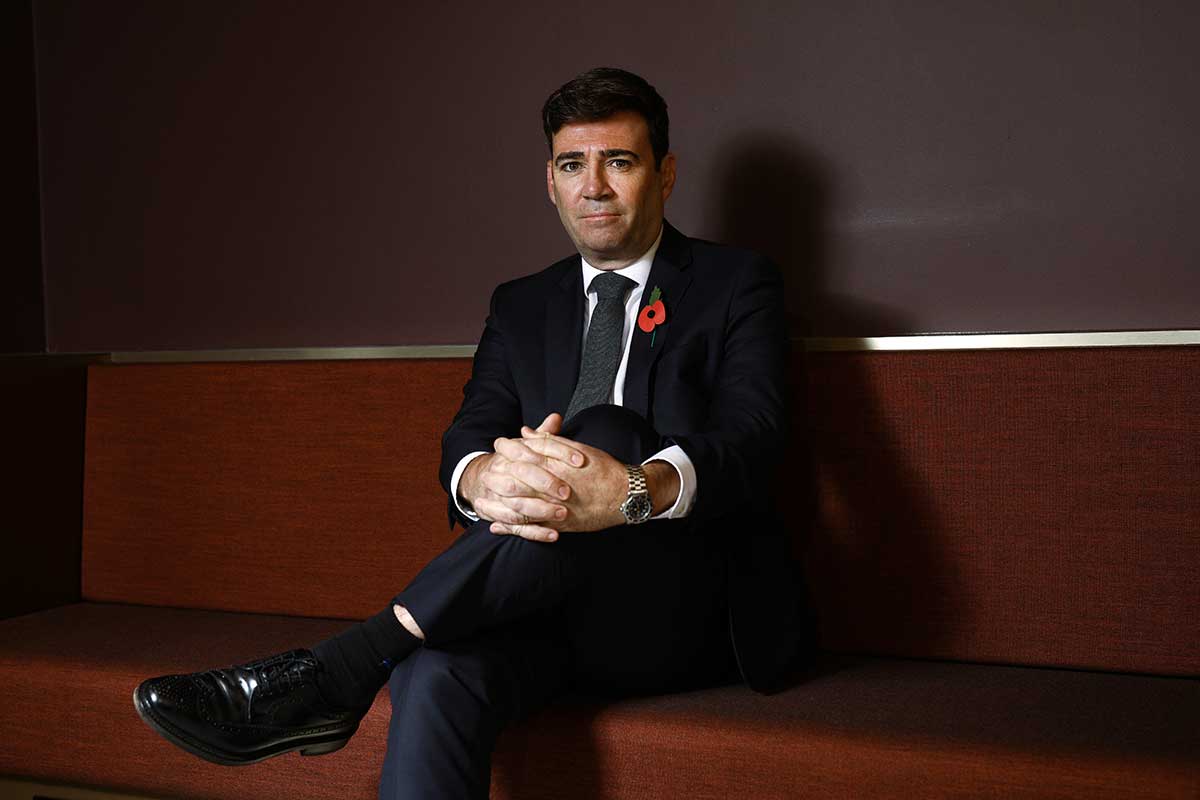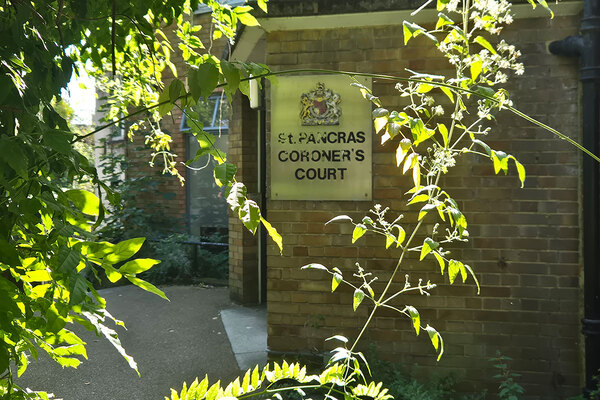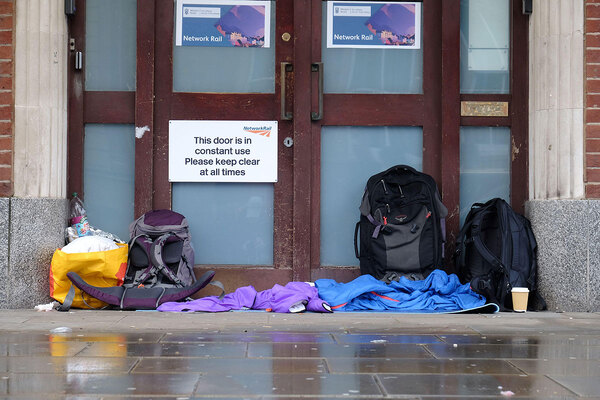You are viewing 1 of your 1 free articles
Manchester united: the mayor’s vision for housing
Greater Manchester mayor Andy Burnham tells Peter Apps about his plan to set standards for private landlords in the region, why Housing First should be encouraged and whether he is keen to return to Westminster
Andy Burnham is reflecting on why no legislation has been passed to toughen up regulation of private landlords – either by the current government or the Labour administrations that preceded it, of which he was a part.
“There was a belief that the market will solve things, so sell off all the council housing and the market will then just take over and sort things out, and the truth of the matter is, it doesn’t,” he says.
“Those reforms of the 1980s were the cause, I guess, of the dysfunctional housing market we have today. And I just think the government that I was in didn’t do enough to roll them back.”
A minister under Tony Blair, cabinet member under Gordon Brown and shadow cabinet member for Ed Miliband and Jeremy Corbyn, Mr Burnham famously left Westminster in 2017, after two successive failed bids to lead the Labour Party preceded his victory in the inaugural Greater Manchester mayoral election.
In this role, he has pushed forward policies that have made headway in tackling some of the UK’s most intractable housing problems and was rewarded with a second term in May by a landslide win, despite his party’s struggles elsewhere.
“People have got to be released from this living hell. And it can only be done by government coming up with a national scheme”
This electoral success and a high-profile tussle with the government for more money in the midst of a pandemic have elevated his status, particularly amid a long-running identity crisis on the left of British politics, and fuelled rumours of a return to Westminster. But, for now, his job is Greater Manchester and the private rented sector is one of several priorities for his second term.
Private rented sector
Mr Burnham says that the pandemic underscored the problems with the region’s large and growing number of private rented homes. “It’s that combination of insecure work and poor-quality housing, which we have in a number of our areas, that has led to many of those places being hit harder than others by the pandemic,” he says.
His plan is for a Good Landlord Charter – a set of standards that private landlords will be encouraged to sign up to – in the hope that residents can at least choose a good landlord. But while he says the region will use “whatever teeth we can” to sign up landlords, without a legislative framework from Westminster it cannot be mandatory.
The limit on mayoral powers is a familiar frustration for Mr Burnham and others in his position around the country, occasionally leaving them without the tools to tackle the obvious housing problems in their regions. “If you had a much more devolved England with more empowered city regions, I think housing would look very, very different than it does right now,” he says.
Another area where this has been problematic is the cladding and fire safety crisis gripping the country. Greater Manchester is at the heart of this: it is the place worst affected after London, with a staggering one in five of the city’s high rises identified as in need of remediation.
Under Mr Burnham, the Greater Manchester Combined Authority established a taskforce that worked with the fire service to go block by block through the region and establish plans for interim measures and remediation. But this is about as far as it can go – without the money or power to prevent building owners from passing costs on to leaseholders, it cannot solve the heart of the problem.
“I think the thing I can say is, obviously, through the work we’ve done we know the scale of the problem and we know what’s needed to remedy it,” he says. “But obviously we’re still needing a macro solution, where it’s government and industry that take the burden on. There’s no other solution really; people have got to be released from this living hell. And it can only be done by government coming up with a national scheme.”
Born on the outskirts of Liverpool in 1970, Mr Burnham gained some of his reputation as a politician through his advocacy for the families of the victims of the Hillsborough football stadium disaster. There is a clear resonance between this and the Grenfell Tower fire.
“As difficult as it was, there was immediate action to move grounds to all-seater and it happened pretty much straight away,” he says. “The dragging of feet about this is just not in any way defensible. I think we are gambling way, way too much as a country with people’s safety, and it needs to be corrected and corrected quickly.”
Another area of housing policy where Mr Burnham sought to make a quick impact was rough sleeping. When he took over in Greater Manchester in 2017, there was a major crisis under way, with official statistics recording a 576% rise over the previous seven years.
Rough sleeping figures are hard to calculate, but the data shows progress. Official counts recorded 151 rough sleepers across the 10 Greater Manchester boroughs in 2019, down sharply from the 268 recorded in 2017. Last autumn, there were 125 rough sleepers recorded, although this was during the government’s Everyone In pandemic scheme.
So there has been progress – real progress – although clearly not quite the end to rough sleeping that was desired when he sought election in 2017.
“Back in 2017, we had a crisis situation that was getting worse,” he says. “I’m not saying we don’t still have challenges and real pressure, but we have an infrastructure to deal with a situation, and we have things to offer people which we just didn’t have four years ago.”
The rough sleeping policy has two major planks. The first is ‘A Bed Every Night’ shelters that offer a bed to all rough sleepers for as long as they need one, as opposed to many other shelters that will only offer accommodation for a single night.
“Once you allow more devolution areas to take more decisions for themselves, you get a better housing solution”
Following an expansion in autumn 2020 (including setting up shelters for people with dogs), around 600 people will be sleeping in these shelters across the region on the night Mr Burnham speaks to Inside Housing in August.
The scheme had to be reconfigured to cope with COVID-19, with the combined authority’s assessment suggesting transmission was actually lower in the shelters than in the area’s wider population.

Housing First
The second plank has been a Housing First pilot, where a secure home is offered to a rough sleeper, without any hoops to jump through, and support for other problems is built in around that. The three-year project has seen 269 people rehoused, with a tenancy sustainment rate of 87%.
Funding for this project comes to an end later this year, however. “Housing First, I think, is telling us something really profound about the way we organise public services and public support,” says Mr Burnham. “It gives a sense of dignity and privacy to people, and lets people regain their self-esteem and then gives them the breathing space to recover. You can’t put a time limit on that. If you do, then you’ll create a new crisis that people will fail again.
“If you set people up to succeed, it’s actually cheaper than if you pay for chaos, if you like, in the old system. I’m just hopeful that if anybody looks at the evidence from Housing First, including the Treasury, they will see this is worth continuing.”
Moving forward, Mr Burnham wants to oversee the development of 30,000 zero carbon social rented homes in the region to help ease the flow of people onto the streets from insecure housing. But affordable housing budgets in Manchester are allocated by Homes England, not the combined authority, and are, of course, limited by the Treasury.
This does not make building new social housing easy: in the first three financial years of his time in office, 802 social rented homes were built, just 2% of the 34,000 homes built across the region over that period, with most affordable housing delivered at either higher affordable rents or for shared ownership.
Without more powers or more money, it is not immediately obvious how Mr Burnham will turn this around – but Paul Dennett, the mayor of Salford, has been tasked with writing and bringing forward a plan within the next year. More powers would plainly make this ambitious target more achievable.
“If we had had the power over social housing, we would have definitely built more earlier,” says Mr Burnham. “Once you allow more devolution areas to take more decisions for themselves, you get a better housing solution.”
It seems likely that the success of this pledge depends on getting money out of the Treasury for social rent housing, a negotiation that is historically difficult and is unlikely to be made easier by pressures on the next spending round.
Development corporations
Something that Mr Burnham hopes will help with this will be large developments in town centres led by mayoral development corporations that can ensure higher levels of social housing. These will begin in Stockport and Middleton, where major residential schemes will be brought forward in a bid to regenerate ailing retail districts.
Mr Burnham views these sorts of projects as the future and his answer to the government’s long-held, but ill-defined, desire to ‘level up’ towns across the North.
“People often ask me when I’m going back to Westminster, or if I am at all. And the answer is: no time soon. And the reason why I say that is because what we’re doing here is building the future. This is building a better way of doing things”
“I think the Stockport Mayoral Development Corporation points a bit of a way forward as to how housing, linking with wider green infrastructure and transport infrastructure, gifts a new lease of life to towns in need of levelling up, which the government keeps talking about,” he says.
Rumours of a return to Westminster and a third Labour leadership bid swirled in the early summer after the party’s by-election defeat in Hartlepool.
But is he not happier in his current role, where he can see the impact of his policy decisions?
“I think so,” he says. “The difference from some of my old jobs as a minister to this is that you can work with names, not numbers. As a minister, you’re so remote from things that you can’t see the difference that new legislation or policies make, whereas in this job it’s absolutely bottom-up.
“People often ask me when I’m going back to Westminster, or if I am at all. And the answer is: no time soon. And the reason why I say that is because what we’re doing here is building the future. This is building a better way of doing things.”
Those who read carefully, of course, will note that “no time soon” is not the same as “no”, and the number of Mr Burnham’s answers that end in frustration about the limit of the powers he has been bequeathed by central government certainly suggests a desire for more influence.
But whether he returns to Westminster or not is a question for the future. For now, there is work to do in the North West.
Sign up for our daily newsletter
Already have an account? Click here to manage your newsletters
Related stories












